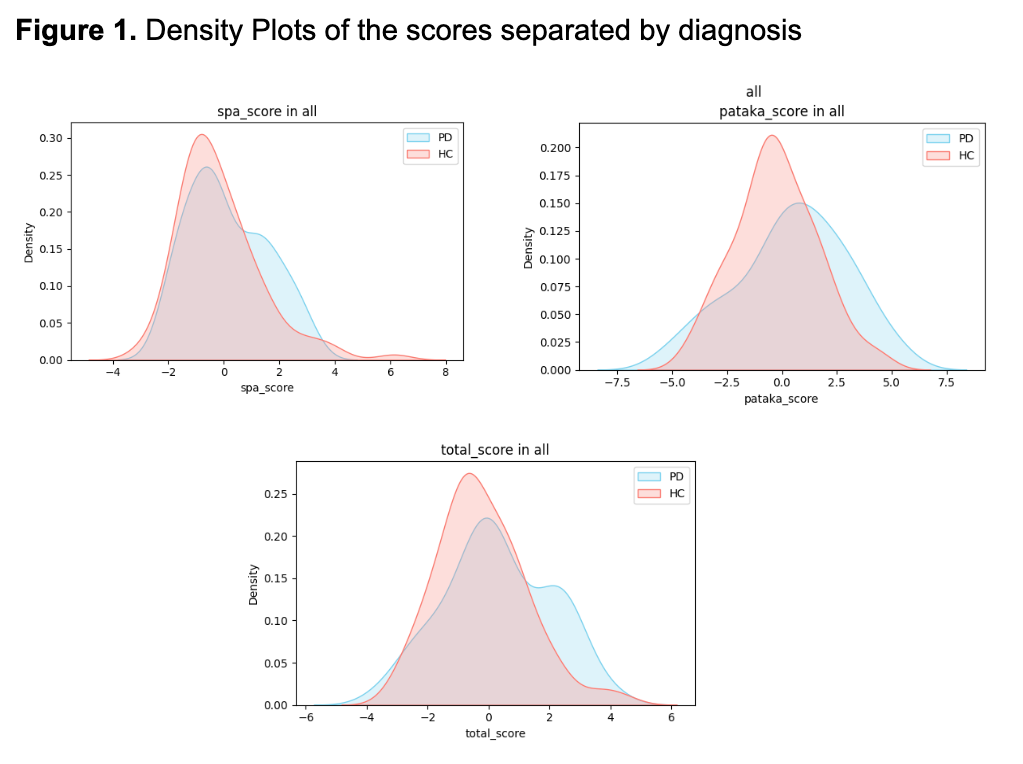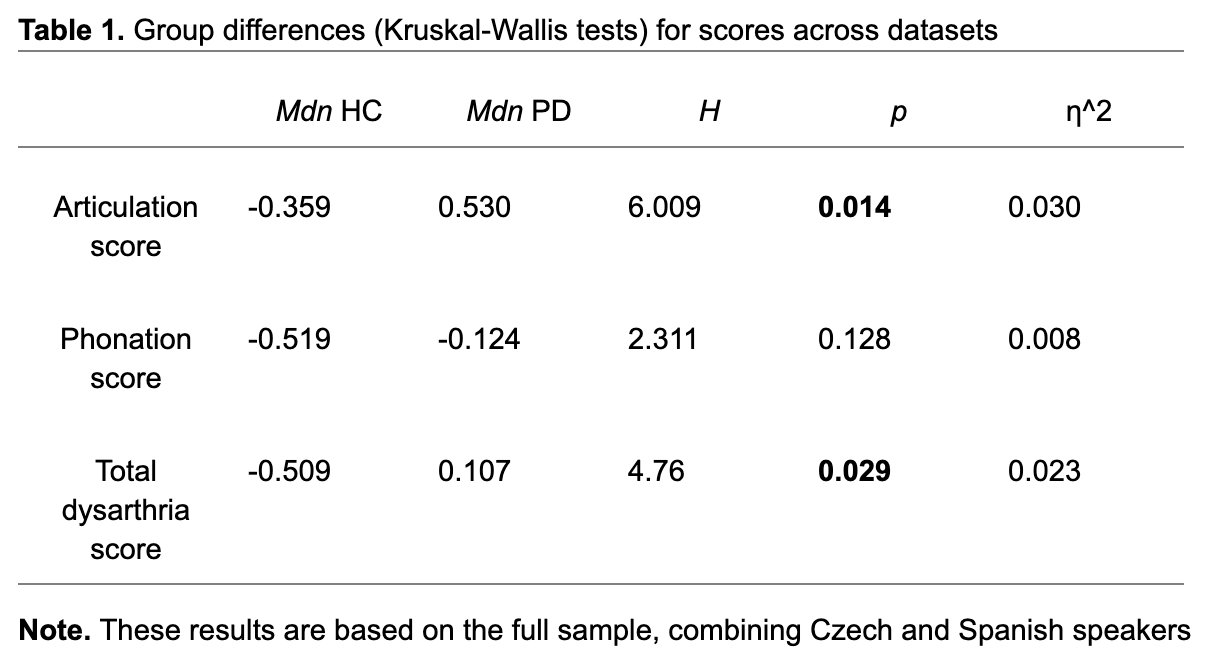Category: Technology
Objective: To identify reliable speech biomarkers for assessing dysarthria in individuals with Parkinson’s disease (PD) and ensuring their clinical validity across languages.
Background: This study aims to identify reliable speech biomarkers for assessing dysarthria in individuals with Parkinson’s disease (PD), ensuring clinical validity across languages (Spanish and Czech) and evaluating their performance across the two common speech tasks – sustained phonation /a/ (SPA) and rapid syllable repetition /pa/-/ta/-/ka/ (DDK).
Clinically relevant speech features are extracted with the ki:elements speech processing pipeline SIGMA. Age and gender influences are controlled through adjacent pre-processing per language. Composite scores are created and assessed for clinical validity using UPDRS-III, the UPDRS- Speech, as well as H&Y scale and evaluated across both languages.
Method: The final sample included 96 Spanish and 98 Czech speakers. Out of 93 DDK and 103 SPA features provided by SIGMA, significant features were identified through Spearman Rank Correlations (p < .05) across both languages. Subscores for phonation and articulation —were created by weighting relevant features and building composites. A composite score, derived from the sum of the two subscores, was used to assess clinical significance by comparing diagnostic groups (HC vs PD) with Kruskal-Wallis tests.
Results: 13 features were selected for the articulation- and phonation-subscore. Table 1 shows the results of the Kruskal-Wallis tests with regards to the group differences in the full sample, combining Czech and Spanish speakers. The articulation and total scores are significantly different between the groups across both samples while the difference in the phonation score did not reach significance. Density plots of the scores separated by groups can be seen in Figure 1.
Conclusion: Significant differences in articulation and total scores between PD and HC groups were observed in both languages, with no significant findings for phonation. These findings are consistent with prior research that emphasize speech prosody is the most affected dimension in PD, followed by articulation (Orozco-Arroyave et al., 2016), and sustained phonation might not be an appropriate task to measure vowel articulation (Rusz et al., 2013).
Figure 1
Table 1
References: Rusz et al., 2013, https://doi.org/10.1121/1.4816541
Orozco-Arroyave et al., 2016, https://doi.org/10.1121/1.4939739
To cite this abstract in AMA style:
J. Tröger, E. Baykara, F. Dörr, J. Rusz, J R. Orozco-Arroyave. Speech Biomarkers for Dysarthria in Parkinson’s Disease — Clinical Validation Across two Languages [abstract]. Mov Disord. 2024; 39 (suppl 1). https://www.mdsabstracts.org/abstract/speech-biomarkers-for-dysarthria-in-parkinsons-disease-clinical-validation-across-two-languages/. Accessed February 27, 2026.« Back to 2024 International Congress
MDS Abstracts - https://www.mdsabstracts.org/abstract/speech-biomarkers-for-dysarthria-in-parkinsons-disease-clinical-validation-across-two-languages/


